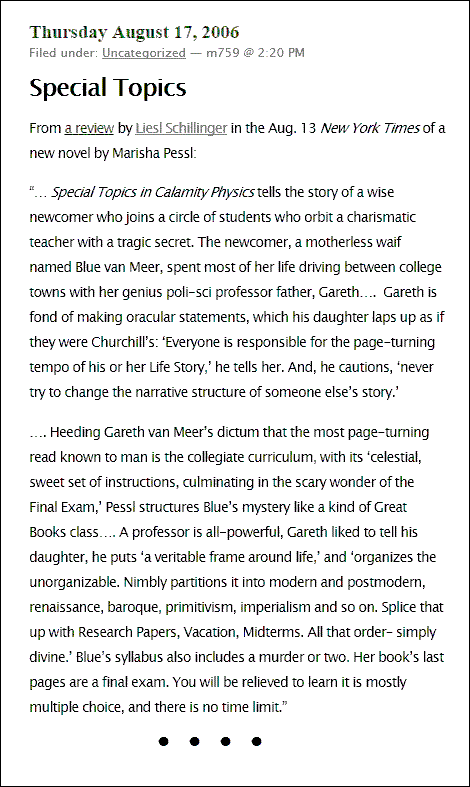From a post of Feb. 24 —
From a search for "Preparation" in this journal (see previous post) —
"It is almost inevitable to compare this book to Borevich-Shafarevich
Number Theory . The latter is a fantastic book which covers a large
superset of the material in Cohn's book. Borevich-Shafarevich is,
however, a much more demanding read and it is out of print.
For gentle self-study (and perhaps as a preparation to later read
Borevich-Shafarevich), Cohn's book is a fine read."
"I meant a larger map." — Number Six in "The Prisoner" (1967)










